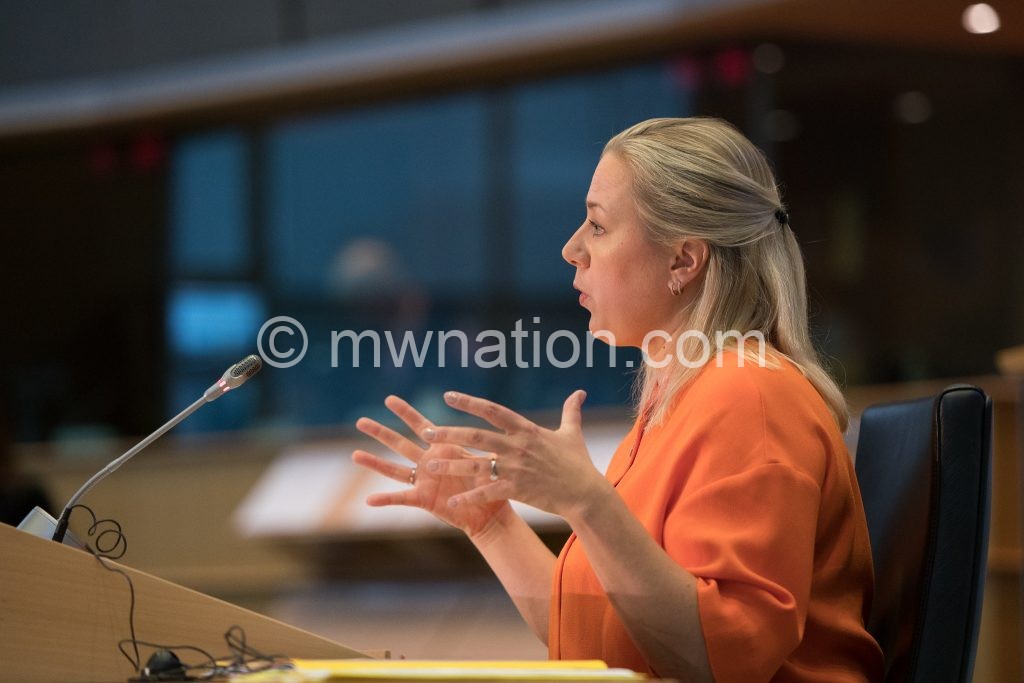EU ramps up Covid support
The European Union has allocated 39 million euro to mitigate the negative effects of the Covid-19 pandemic in Malawi.
The funding, an equivalent to K38 billion, will ramp up nutrition and social protection of vulnerable people, including pregnant women and children.

Jutta Urpilainen, EU commissioner for International Partnerships, said: “The Covid-19 pandemic risks wiping out in many countries any progress made in human development over the recent years.
“As a former teacher myself, I am proud that, through this contribution, 280 000 pupils will be able to continue accessing school meals. This is key for their development and to their education.”
The pandemic has strained health care system amid lax containment measures.
The most vulnerable have been most affected by food scarcity and rising food prices.
The additional support from Europe focuses mainly on minimising the socio-economic consequences of the pandemic, which has claimed 185 lives from 5 964 coronavirus cases confirmed since April.
The inflows include16 million euro (K15.6 billion) top up for the 70 million euro (K68.3 billion Afikepo programme to help the children] develop to their full potential through good nutrition, sanitation and hygiene.
The top-up will allow 280 000 pupils receive school meals in 200 primary schools in the Southern Region.
Smallholder farmers in the surrounding communities will be the principal suppliers of the food, contributing also to support the local agri-systems.
As the pandemic is limiting access to health check-ups and malnutrition treatments, the EU support also includes Covid-19 prevention measures, such as improving access to safe water, sanitation and hygiene as well as behavioural change interventions to benefit school learners, their families and their entire communities.
A further 23 million euro (K22.4 billion) will be provided to support the national social cash transfer programme, increasing the total funding from 50 million euro (K48.8 billion) to 73 million euro(K71.2 billion) to support Malawians in extreme poverty.
Building on emerging lessons, the new funding will increase the number of beneficiaries in rural areas and extend it to urban vulnerable populations.
Currently, the social cash transfers benefit 65 000 households in rural settings only. The.
As a Covid-19 response, the top-up will increase the number of regular beneficiaries in rural areas from 65 000 to 80 000 in the next year when recipients in rural areas will receive a temporary addition of K5 000 for four months.
Besides, 27 000 households in urban settings will receive a three-month K35 000 a month to cushion the socioeconomic effects of the pandemic. The amount is equal to the minimum salary.
Urban beneficiaries will include households living hand-to-mouth in informal sector, whose livelihoods have been hit hard.
Germany and Ireland are also involved in strengthening social protection systems in Malawi. The KfW Development Bank is the main implementing partner of this action.
EU support to Malawi, totalling 600 million euro (about K585.6 trillion) since 2014, focuses on stimulating agriculture-driven growth and economic development, addressing the key weaknesses in domestic accountability to ensure stability in the country and supporting the most vulnerable against recurring shocks.





